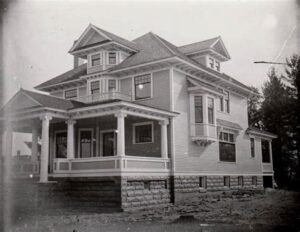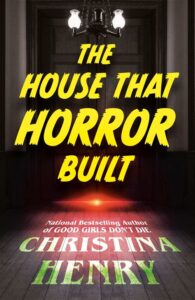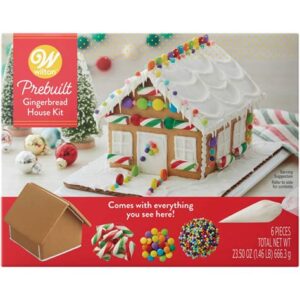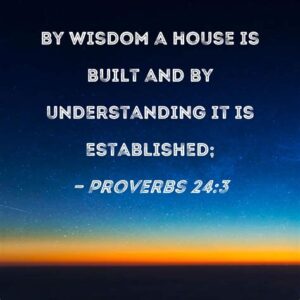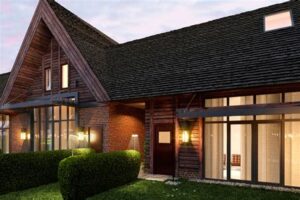Explore “The House Jack Built” with an overview, theme analysis, character insights, symbolism, and critical reception. Delve into this compelling literary work.**The House Jack Built: An In-Depth Exploration**
In the realm of contemporary literature, “The House Jack Built” stands out as a profound narrative that intertwines nuanced themes and complex characters. This blog post delves into the intricacies of the book, beginning with an overview of its plot and setting, while highlighting the multifaceted themes that resonate throughout the story. With a particular focus on Jack, the enigmatic protagonist, we will analyze his character and the motivations that drive him. Additionally, we’ll explore the significance of the house itself, serving as a powerful symbol within the narrative. Lastly, we will examine the critical reception and reviews that the book has garnered, shedding light on how it has impacted readers and writers alike. Join us as we uncover the layers of meaning in this captivating work.
Overview of The House Jack Built Book
The House Jack Built is a controversial novel penned by author Peter K. O’Neill, exploring the intricate dynamics of morality and the human psyche. The plot follows the story of Jack, a troubled character whose journey unveils the darker aspects of human nature and societal constructs. Throughout the narrative, elements of violence, existentialism, and philosophical questioning are woven into the text, crafting a thought-provoking experience for readers.
This novel invites readers to delve deep into Jack’s mind, as he struggles with his actions and the consequences they bring. The book is characterized by its non-linear storytelling, shifting perspectives, and rich symbolism, particularly revolving around the concept of a “house” as a central motif. The house itself embodies not just physical space but also the emotional and psychological ramifications of Jack’s choices.
With its raw and unflinching examination of the human condition, The House Jack Built examines how environment and upbringing shape one’s morality. It challenges readers to reflect on their values and the impact of societal norms on personal decisions. As the narrative unfolds, readers are left grappling with the complexities of guilt, redemption, and the hollowness of modern existence.
Themes Explored in the Book
The House Jack Built delves into a myriad of complex themes, offering readers a profound exploration of morality, humanity, and the dark recesses of the human psyche. One of the central themes is the struggle between chaos and order. Throughout the narrative, Jack embodies a chaotic force that gradually undermines societal norms, challenging the very fabric of morality.
Another significant theme is the nature of evil. Jack’s character represents the philosophical debate surrounding the existence of evil. The book intricately examines whether evil is intrinsic to humanity or cultivated through external influences. As readers witness Jack’s disturbing actions, they are prompted to reflect on the origins and implications of his malevolence.
Moreover, the theme of alienation and isolation plays a crucial role in the story. Jack’s interactions often reveal his detachment from society, highlighting the psychological impacts of loneliness and the desperate longing for connection. This sense of alienation not only shapes Jack’s character but also underscores the profound impact that lack of empathy and personal relationships can have on an individual’s behavior.
Ultimately, the themes of societal breakdown, the duality of human nature, and the consequences of unchecked ambition resonate throughout the text, leaving a lasting impression on the reader as they navigate the intricate layers of Jack’s tumultuous existence.
Character Analysis of Jack
In the haunting narrative of The House That Jack Built, the character of Jack is a complex embodiment of both the creator and the destroyer. As an aspiring architect and a psychiatrist, he serves as a representation of the duality within human nature. He simultaneously seeks to build a perfect existence while indulging in the darker aspects of his psyche.
Jack’s character is marked by his meticulous attention to detail and his unyielding ambition. Throughout the story, he meticulously plans and constructs his life, mirroring the physical structure of a house. However, this desire for control reveals his deep-seated insecurities and a need for validation. He oscillates between a meticulous planner and a chaotic figure fueled by his own inner demons.
| Traits | Description |
|---|---|
| Intelligent | Jack possesses a sharp mind, enabling him to engage in psychological manipulation. |
| Obsessive | His obsessive nature drives him to extreme measures as he seeks perfection. |
| Detached | He often remains emotionally distant from others, illustrating his struggle with empathy. |
The juxtaposition of Jack‘s intellect and emotional detachment makes him a captivating yet troubling character. This multifaceted portrayal invites readers to explore the boundaries of morality and the effects of unbridled ambition. As we delve deeper into his psyche, we begin to question our own perceptions of right and wrong, further enriching the narrative of The House That Jack Built.
Impact of the House as a Symbol
In The House That Jack Built, the house itself serves as a powerful symbol that resonates throughout the narrative. It represents not just a physical structure, but also the complex relationships and psychological states of the characters. The house embodies Jack’s inner turmoil, showcasing how his chaotic mind manifests in the very walls he inhabits. This duality of the house as both a literal and figurative space is crucial to understanding the book’s overarching themes.
As the story unfolds, we see the house transition from a site of security to a space of horror. This transformation mirrors Jack’s deteriorating mental state, emphasizing the disintegration of his moral compass. The architecture of the house, with its labyrinthine corridors and hidden rooms, can be interpreted as a reflection of Jack’s mind—tangled, dark, and full of secrets. The contrast between the home’s initial warmth and its eventual coldness serves to highlight the emotional distance that develops between Jack and the other characters.
Moreover, the house symbolizes the consequences of violence and detachment. The various rooms serve as metaphors for different stages of Jack’s journey, each filled with remnants of his past decisions. As Jack occupies these spaces, they become increasingly tainted by his actions, illustrating how one’s environment can become a mirror of their inner chaos. This dynamic relationship between Jack and the house ultimately delivers a haunting commentary on the fragility of human connections and the depths of isolation.
Critical Reception and Reviews
The book The House Jack Built has garnered a mix of critical responses since its release. Critics have often noted its provocative themes and the complex nature of the protagonist, Jack. Reviews highlight how the narrative delves into the darker aspects of human psychology, which is both captivating and unsettling for some readers.
According to several literary critics, the book’s stark portrayal of violence and moral ambiguity has drawn comparisons to classics in the genre. It pushes the boundaries of how we perceive violence in literature and challenges traditional narratives that often seek to justify or explain such actions. The book’s structure and style have also sparked discussions on its artistic merits.
While some praise the book as a profound exploration of the human condition, others have found it disturbing and difficult to engage with. The polarizing nature of the book has led to a vibrant discourse within literary circles, making it a notable topic in contemporary literature. Overall, The House Jack Built stands out for its daring approach, prompting readers and critics alike to
Frequently Asked Questions
What is the central theme of ‘The House that Jack Built’?
The central theme is the exploration of the nature of evil and the complexity of the human experience, highlighting the actions and justifications of its protagonist, Jack.
Who is the main character in ‘The House that Jack Built’?
The main character is Jack, a serial killer who narrates his life and the construction of his ‘house’ as a metaphor for his violent creations.
How does the structure of the book enhance its narrative?
The book is structured around the stages of building a house, which parallels Jack’s killings and mental state, creating a metaphorical representation of his psyche.
What literary techniques does the author use in the book?
The author employs dark humor, philosophical dialogue, and a nonlinear narrative to challenge readers’ perceptions of morality and justify Jack’s actions.
How does ‘The House that Jack Built’ reflect societal issues?
The book reflects societal issues such as violence, the desensitization of society towards crime, and the philosophical discussions around what defines humanity and morality.
What are some critical responses to ‘The House that Jack Built’?
Critical responses vary widely, with some praising its bold exploration of dark themes, while others criticize it for its graphic violence and unsettling narrative.
Is ‘The House that Jack Built’ suitable for all audiences?
No, ‘The House that Jack Built’ contains graphic violence and disturbing themes that make it unsuitable for younger audiences or those sensitive to such content.
